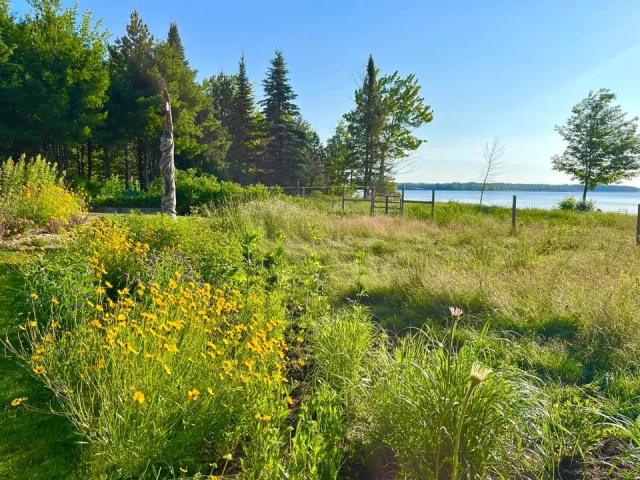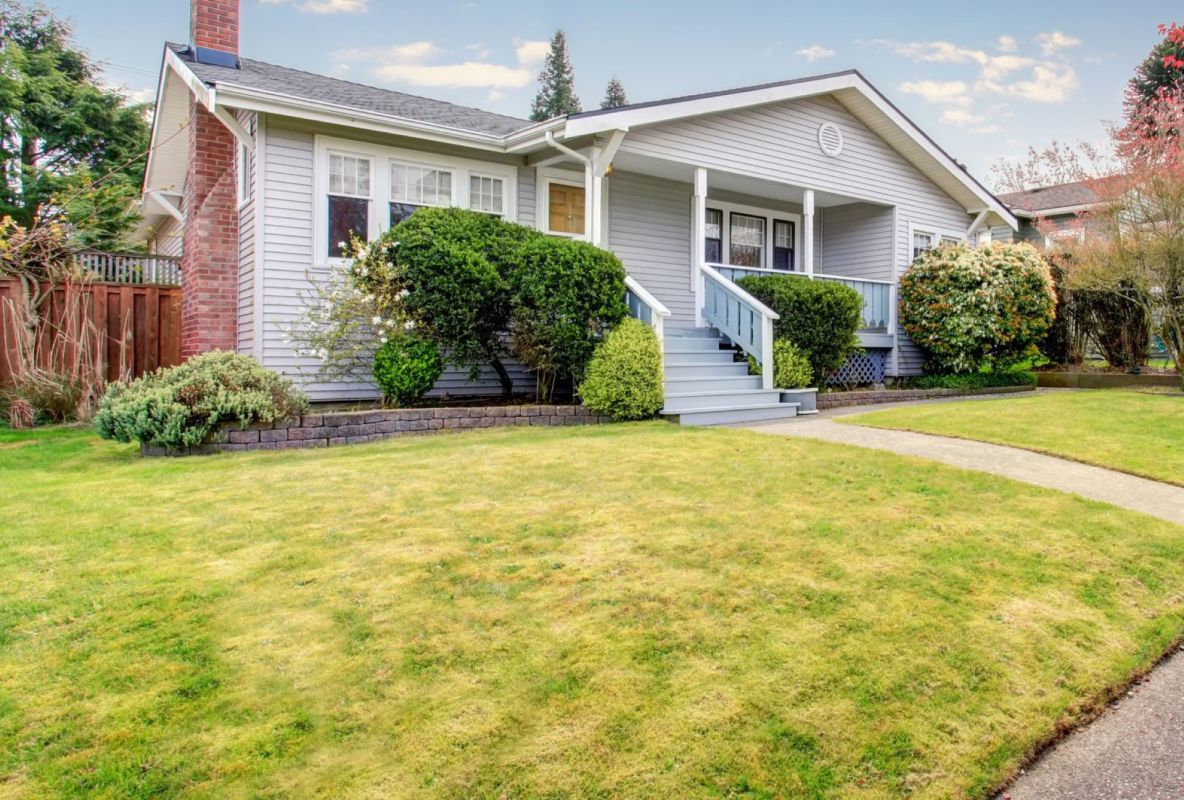In July, a Redditor showed r/NativePlantGardening the idyllic garden they'd been working on for a year at their home on Lake Superior.
Most modern landscaping uses popular plants imported from far away. Because these plants aren't adapted to the local climate, they need lots of water, fertilizer, pesticide, and general care to keep them healthy in weather conditions they weren't made for. This is expensive, time-consuming, and hard on the environment.
Native plants, on the other hand, are perfectly suited to the local environment. Some truly beautiful landscaping designs can be created with local natives, which then need only minimal maintenance to stay beautiful and healthy. Plus, they provide food and habitat for local wildlife, including butterflies, bees, and birds.


This Redditor explained just how easy it was to transition to native plants. "A few years ago we bought a place on Lake Superior with just a really big lawn," they said. "Now we have a tiny scrap of lawn, a wet sedge meadow, and several native gardens that I planted 12 months ago, exactly."
According to the Redditor, they used plugs to plant most of the native species, but the sedges came back on their own as soon as the homeowner stopped mowing. The result was a lush carpet of greenery stretching toward the shoreline, with flowers all around.
"Right now, coreopsis is aiming for world domination, but it's short lived, so I'm not worried about that," said the original poster. "Valerian, vervain, tons of spiderwort, are also blooming, along with pale purple coneflower. The purple coneflowers are about to bloom, along with figwort, mountain mints, anise hyssop, and a bunch of others."
All those beautiful flowers attract many pollinators, the Redditor reported. While they weren't certain of every species, they believed they had seen ruby-throated hummingbirds, rusty-patched bumblebees, and yellow-rumped warblers. They were also expecting butterflies as their milkweed was ready to bloom.
Commenters loved the breathtaking photos and were eager to see how the garden might develop over time.
"This is really inspiring," said one user. "Awesome work, and definitely give us some progress pics in the future."
Join our free newsletter for easy tips to save more, waste less, and help yourself while helping the planet.









